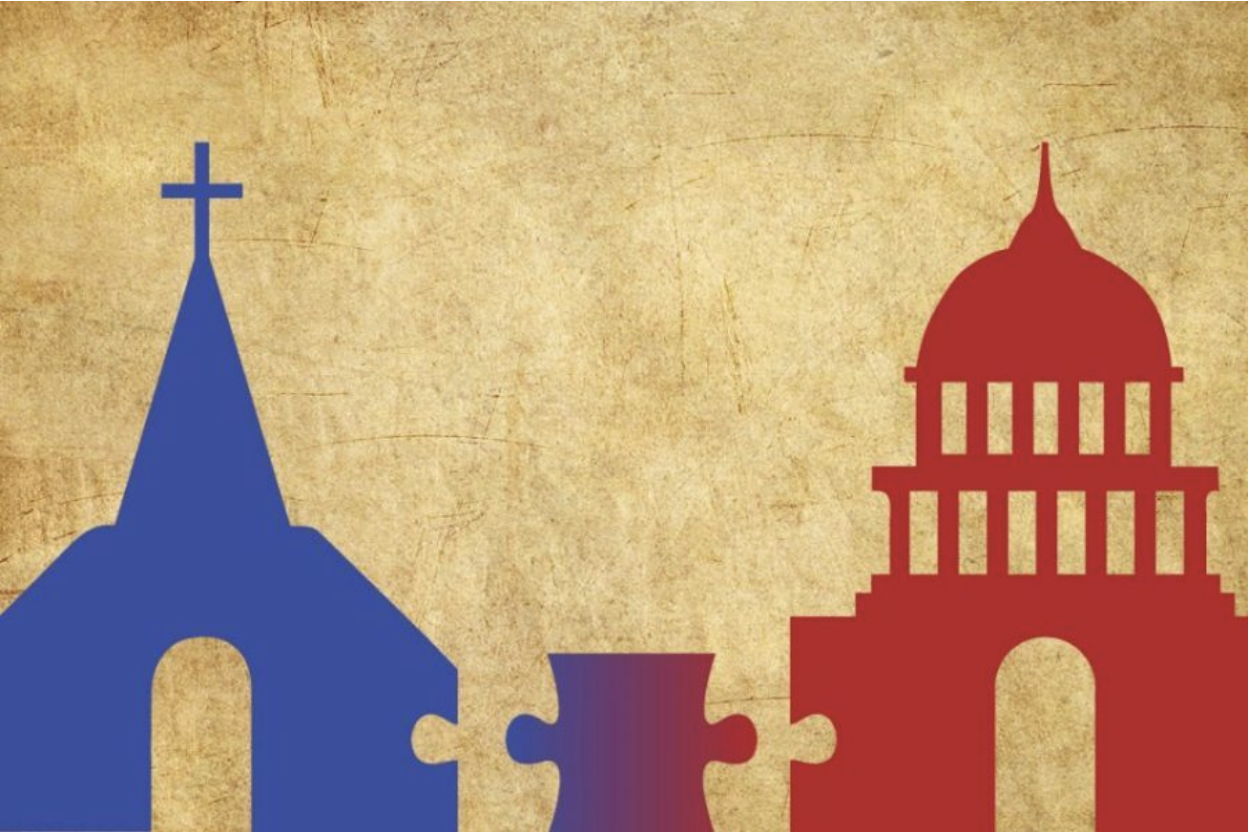No More Lemon: The Supreme Court’s Take on Religion.

Significance of the Supreme Court
The Supreme Court has made several controversial decisions since the conservative bloc takeover. Many of those decisions can have far-reaching impacts that affect legislation and, consequently, the people's rights and freedoms. New precedents are set each year, yet few of the sixty-six cases that were heard during the 2021-2022 term made headlines [1]. One case, Kennedy v. Bremerton School District, radically changed how religious issues are interpreted. However, it remained out of view from the public eye.
Kennedy v. Bremerton School District: Background
Joseph Kennedy, a high school football coach at a school located in Bremerton School District, performed a religious-themed prayer at the midfield following every football game. Initially, Kennedy prayed alone, but several players joined him as the season progressed. Kennedy soon began giving motivational speeches to his team, most of which also included religious themes. After a parent filed a complaint stating their son felt compelled to join the prayers, the district notified Kennedy that school policy prohibited his football ritual. Although Kennedy complied at first, he later resumed his past behavior and rallied media support for his actions. The district attempted to offer Kennedy accommodations, but he refused to compromise. Kennedy was placed on administrative leave, causing him to sue the district for violating his First Amendment rights. [2]
The First Amendment
The First Amendment grants several different protections regarding free speech and expression. The basis of Kennedy's argument was that prohibiting his prayers violated his right to free speech. However, several past Supreme Court rulings have affirmed that the First Amendment also prohibits the government and its agencies, including public schools, from establishing religion. Fearing constitutional liability, the district argued that allowing Kennedy to pray in public schools could be interpreted as an attempt to establish religion.
Decision
The lower courts sided with the Bremerton School District, concluding that "Kennedy's attempts to draw nationwide attention to his challenge to BSD compels the conclusion that he was not engaging in private prayer, but was instead engaging in public speech of an overtly religious nature while performing his job duties" [3]. However, the district's victory was short-lived. In a 6-3 decision along ideological lines, the Supreme Court overturned the lower court's decision and ruled in favor of Kennedy. According to the majority opinion, the lower courts had based their decision on a flawed interpretation of the establishment clause rooted in the "Lemon" approach to resolving religious disputes. The conservative justices believed this approach was no longer relevant in resolving religious disputes today.
Death of Lemon
What was the Lemon approach? Fifty years ago, the Supreme Court, in the case Lemon v. Kurtzman, established a "test" to determine whether a specific piece of legislation violated the Establishment Clause of the First Amendment. Gradually, the Lemon test expanded to apply to all Establishment Clause cases. As mentioned earlier, this clause prohibits government endorsement of religion in public government-controlled settings, including public schools. The test contained three prongs: the legislation "must have a secular legislative purpose, its primary effect must neither advance nor inhibit religion, and it must not foster excessive government entanglement with religion" [4]. Lemon v. Kurtzman established a precedent that clearly defined the boundaries between church and state. In other words, many other cases concerning religious practices, including public schools, would use Lemon to decide whether or not an action or policy complied with the Constitution.
Birth of Tradition
However, Kennedy v. Bremerton School District will likely be the last case that references Lemon. According to the petitioner, the panel of judges in the Ninth Circuit Court of Appeals applied "a flawed understanding of the Establishment Clause reflected in Lemon v. Kurtzman" [5]. The conservative justices seemed to agree. In an act that reflects the current court's agenda of overturning well-established precedents, Kennedy v. Bremerton School District abolished the Lemon Test de facto. In its place, the court adopted the "historical practices and understandings" approach, an ill-defined, ambiguous method of evaluating religious issues. According to the majority opinion, '''[T]he line' that courts and governments 'must draw between the permissible and the impermissible' has to 'accor[d] with history and faithfully reflec[t] the understanding of the Founding Fathers.'" [6]. What was the understanding of our Founding Fathers? If the justices meant the time they ratified the First Amendment, public schools continued to teach Bible lessons and lead prayers during that era. Today, this would be an impermissible example of excessive entanglement between church and state. Without a thorough definition of "the understanding," Justices can bend new cases in whatever way they please. As mentioned in Justice Sonia Sotomayor's dissenting opinion, "the Court reserves any meaningful explanation of its history-and-tradition test for another day" [7].
Consequences
Without Lemon, arguments based on establishment clause violations become much less viable. More educators may pray openly and publicly, which can bring discomfort to students. Potential plaintiffs are also less likely to take action, knowing that the conservative court favors freedom of speech protections. If another religiously-grounded case reaches the Supreme Court, the vague guidelines established by the "History and Tradition Test" allows the justices to overturn other precedents concerning religion in favor of their perceived idea of tradition. By abandoning the well-established Lemon Test for an ill-defined "History and Tradition Test," the Supreme Court demonstrates that it is more focused on promoting conservative religious ideals rather than protecting our right to secular education. The conservative bloc has once again overturned a decade-long precedent and left another issue to ambiguity.
Sources
1. Ballotpedia. “Supreme Court Cases, October Term 2021-2022.” Accessed December 9, 2022. https://ballotpedia.org/Supreme_Court_cases,_October_term_2021-2022.
2. Ballotpedia. “Kennedy v. Bremerton School District.” Accessed December 9, 2022. https://ballotpedia.org/Kennedy_v._Bremerton_School_District.
3. SMITH, M. “KENNEDY v. BREMERTON SCHO.” Leagle. Accessed December 9, 2022. https://www.leagle.com/decision/infco20210318136.
4. “Supreme Court Cases Concerning the Establishment of Religion Clause.” Accessed December 9, 2022. https://cga.ct.gov/PS94/rpt%5Colr%5Chtm/94-R-0083.htm.
5. “21-418 Kennedy v. Bremerton School Dist. (06/27/2022),” n.d. Accessed December 9, 2022.
6. Ibid.
7. Ibid.
